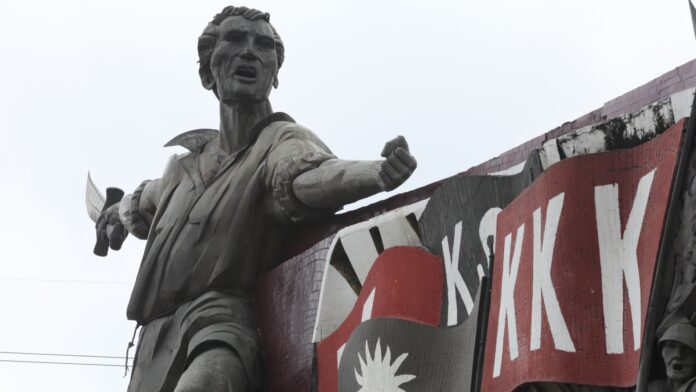President Ferdinand R. Marcos Jr. on Saturday called on his fellow Filipinos to honor Andres Bonifacio’s memories by helping liberate the Philippines from the “ills of society.”
In his message for the commemoration of Bonifacio’s 161st birth anniversary, Marcos said the entire nation owes the revolutionary hero a debt of gratitude for “awakening our nationalist consciousness, upholding our sense of identity, and rousing our spirit of self-determination.”
“Gat Andres may have been long gone, but his fight carries on. His courage, selflessness, and determination continue to inspire us all to strive for greatness in our shared task of nation-building,” Marcos said.
“Let us honor his memory by finding a deeper meaning in his sacrifice and doing our part in liberating our country from the shackles of hunger, corruption, criminality, and other ills of society.”
He said Bonifacio’s heroism and courage lit the Philippine Revolution that “finally united our land and emboldened many to lay down their lives willingly for the cause of our motherland against the colonizers.”
He expressed hope that under his watch, Filipinos would stand united to achieve “genuine” peace and progress under the “New Philippines.”
“As we celebrate this auspicious occasion, let us remember the legacy of sacrifice that he and our forebears have demonstrated,” the President said, noting how Bonifacio stood firm to realize his dreams and goals for the country.
“With patriotism, discipline, and love for one another as our guide, let us build a better Bagong Pilipinas where every Filipino lives in genuine peace, progress, and harmony.”
Bonifacio, dubbed the “Father of the Philippine Revolution,” was born in Tondo, Manila on Nov. 30, 1863.
Unlike other national heroes, Bonifacio is remembered on his birthday rather than the date of his death as he was killed by his fellow Filipinos and not by Spanish colonizers.
As one of the Philippines’ national heroes, Bonifacio co-founded the Kataas-taasan, Kagalang-galangang Katipunan ng mga Anak ng Bayan (KKK) in 1892 that sought to liberate the Philippines from Spanish colonial rule, a secret revolutionary movement that fought for Philippine independence from Spain.
He became “Supremo” (Supreme leader) of the Katipunan in 1895 but was forcefully replaced by Emilio Aguinaldo in 1897.
He was executed by his fellow Katipuneros on May 10, 1897 after Aguinaldo accused him of treason.
It was through the KKK’s initiative that the Philippine Revolution began. The movement ultimately led to the Philippines’ independence from Spain in 1898. (PNA)


